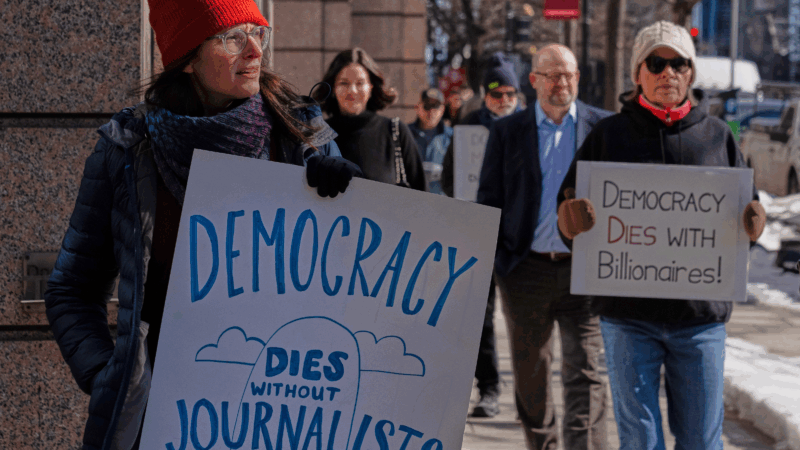Why I Support WBHM: “I Don’t Have to Think About the Oxford Comma!”
Nick Patterson is the editor of the weekly newspaper WELD, and joins WBHM each Thursday during All Things Considered to discuss the week’s news. He’s not just one of the voices you hear on WBHM. He’s also a member and a fan.
“I love the education stories and the in depth news stories,” says Patterson. “I love the fact that WBHM, as an NPR affiliate, really connects you to some of the best journalism you’re going to hear in any broadcast medium.”
When he’s not writing for and reading WELD, he’s listening to the radio.
“I listen to WBHM in my car, sometimes at home, because, really, when you need the news right now, this is the place to get it,” Patterson says.
But there’s also one other reason this print journalist likes WBHM. He doesn’t have to worry about punctuation. Especially the Oxford comma.
“That always comes up as an issue I have to deal with,” says Patterson of the tricky comma.
For the uninitiated, Patterson explains: “The Oxford comma is the comma that you put before the ‘and’ in a series in a sentence. Sometimes you have three things that you mention. At the one just before the ‘and’ you have to make a decision. Do you put a comma before it…or not?”
“When I worked at the Birmingham Post-Herald, we used the Oxford comma quite frequently. Now that I’m working at WELD, we basically decided we wouldn’t,” says Patterson. “It feels weird because I have to take the Oxford comma out, not only of my own writing, but of other peoples’ writing as well. It feels sort of like I’m betraying the Oxford comma.”
One thing he says he’d never betray? The public radio station he loves.
“WBHM: Whether you like the Oxford comma or not, it’s great public radio in Birmingham,” Patterson says.
Pentagon says it’s cutting ties with ‘woke’ Harvard, ending military training
Amid an ongoing standoff between Harvard and the White House, the Defense Department said it plans to cut ties with the Ivy League — ending military training, fellowships and certificate programs.
‘Washington Post’ CEO resigns after going AWOL during massive job cuts
Washington Post chief executive and publisher Will Lewis has resigned just days after the newspaper announced massive layoffs.
In this Icelandic drama, a couple quietly drifts apart
Icelandic director Hlynur Pálmason weaves scenes of quiet domestic life against the backdrop of an arresting landscape in his newest film.
After the Fall: How Olympic figure skaters soar after stumbling on the ice
Olympic figure skating is often seems to take athletes to the very edge of perfection, but even the greatest stumble and fall. How do they pull themselves together again on the biggest world stage? Toughness, poise and practice.
They’re cured of leprosy. Why do they still live in leprosy colonies?
Leprosy is one of the least contagious diseases around — and perhaps one of the most misunderstood. The colonies are relics of a not-too-distant past when those diagnosed with leprosy were exiled.
This season, ‘The Pitt’ is about what doesn’t happen in one day
The first season of The Pitt was about acute problems. The second is about chronic ones.






